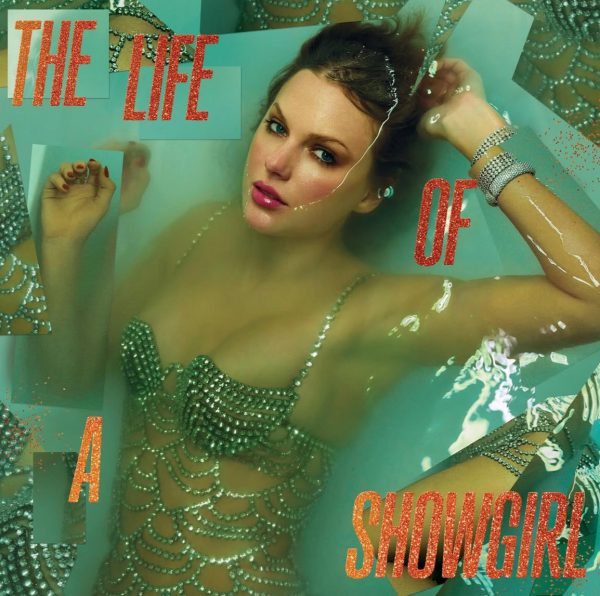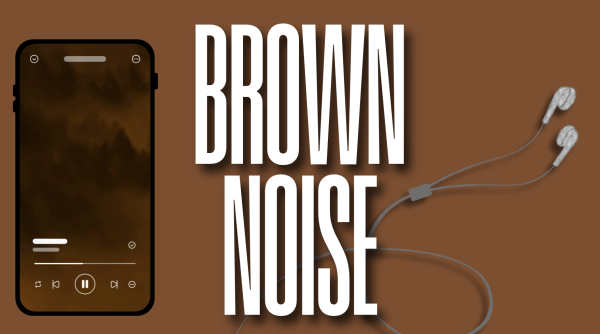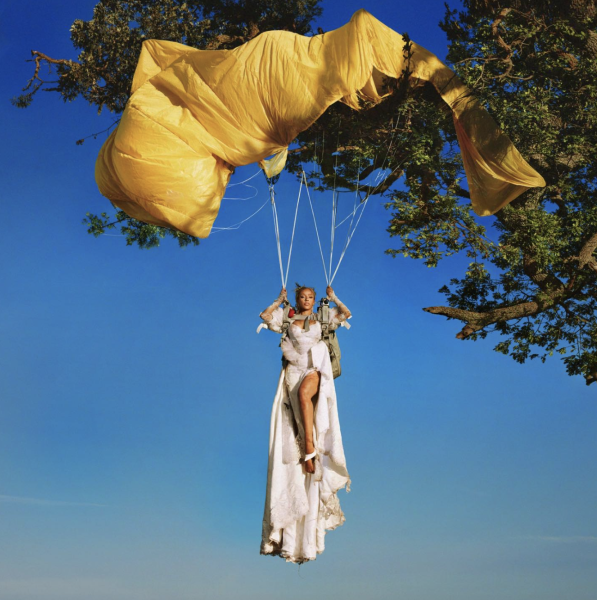Fleet Foxes’ “Shore” Is So Easy to Enjoy
There’s something that just feels right about beginning the fall season with a new Fleet Foxes album. Released at precisely 13:31 universal coordinated time on Tuesday, Sept. 22, “Shore” was coordinated to drop on the autumnal equinox right as the seasons changed. This is the fourth studio album recorded by the Seattle band, led by founding members Robin Pecknold and Skyler Skjelset.
This is the second album released by Fleet Foxes after their four year hiatus, which began in 2012, following the departure of their drummer Josh Tillman, also known as Father John Misty.
“Shore” is by far the most accessible of all the band’s records. It’s an album that features a wide range of tracks (15 to be exact), with lots of the same elements that Fleet fans have grown accustomed to over the years. Melodic, quiet guitar and piano instrumentals, Pecknold’s consistently powerful lyrics and awe-inspiring, glossy harmonies intertwine to create an album that has already drawn universal praise from critics and fans alike.
While the album is incredibly polished and mixed perfectly, there’s still a lot to get into and dissect on these tracks. So cuff your jeans a few more notches, throw on a flannel and let’s take a deep dive into the music.
We start with a set of two tracks, “Wading in Waist-High Water” and “Sunblind,” which flow right into one another in what might be my favorite sequence on this record. Two sets of siblings, Georgiana and Frederika Leithauser, as well as Juliet and Faye Butters, round out the choir of voices heard on the first track, and Robin Pecknold comes in on lead vocals in the second.
“Sunblind” is an ode to some of the singer/songwriters that have influenced Pecknold the most, including Bill Withers and John Prine, who both passed away earlier this year. The song reminded me a lot of their self-titled debut album “Fleet Foxes,” and has a similar chord progression to one of my favorite tracks on that record, “He Doesn’t Know Why.”
The next four tracks on “Shore” exemplify the evolution of Fleet Foxes as a band, and track four, titled “Jara,” feels like the perfect blend of Pecknold’s lyricism and modern baroque pop. I especially like the way the synth background accompanies lead guitar on this track. It also contains something unheard of on Fleet’s previous records: a strong backbeat.
It’s especially ironic that drums are so prevalent on this album considering the rapid success of previous Fleet Foxes drummer, Josh Tillman, who is now one of the most famous indie solo artists in the world. The Fleet Foxes record that he contributed the most heavily to was “Helplessness Blues” back in 2011, which features only a few tracks with minimal drumming.
Moving on, we come to what I consider the apex of this record. “For a Week or Two” and “Maestranza” probably won’t be the biggest hits to come off this album and won’t be atop your Spotify top 10 list; however, I think they are the most emotionally resonant and well produced tracks ever conceived by Fleet Foxes. The first track is mostly a cappella with some light piano accompaniment, and even though it’s barely over two minutes long and has relatively simple lyrics, this song really hit me hard.
Pecknold told Entertainment Weekly that he wanted “For a Week or Two” to feel like a lonely wilderness backpacking trip. He explained, “I would be alone in the wilderness and I would be happy to have myself disappear, just for a few days,” and continued saying, “Not have ties to society, not have a mirror to look in. I wanted to look back on that kind of memory and maybe put someone else in that position.”
I have to add that on first listen, the second half of this record was a little disappointing. With such a strong beginning and an excellent bridge song in “Maestranza,” perhaps I had unrealistic expectations for the back of this album.
That being said, after listening to the record a few more times there are certainly some hidden gems. For instance, “Going-to-the-Sun Road,” a song that features a minute long Porteguese verse from Brazilian musician Tim Bernardes, or “Cradling Mother, Cradling Woman” which includes a sample from “Don’t Talk (Put Your Head On My Shoulder)” by The Beach Boys, a band that was a big inspiration for Robin Pecknold and Skyler Skjelset growing up on the west coast.Overall, I stand by what I said earlier. “Shore” is the most accessible Fleet Foxes album. But that’s not a bad thing — in fact, it might be the very thing everyone needs right now. This record is so easy to enjoy, and unlike their 2017 album “Crack-Up,” there aren’t a lot of avant-garde tracks that take work to understand. Fleet Foxes continues to be a staple of the American folk/indie genre, and “Shore” features some of the best music they’ve ever produced.















































































































































































































